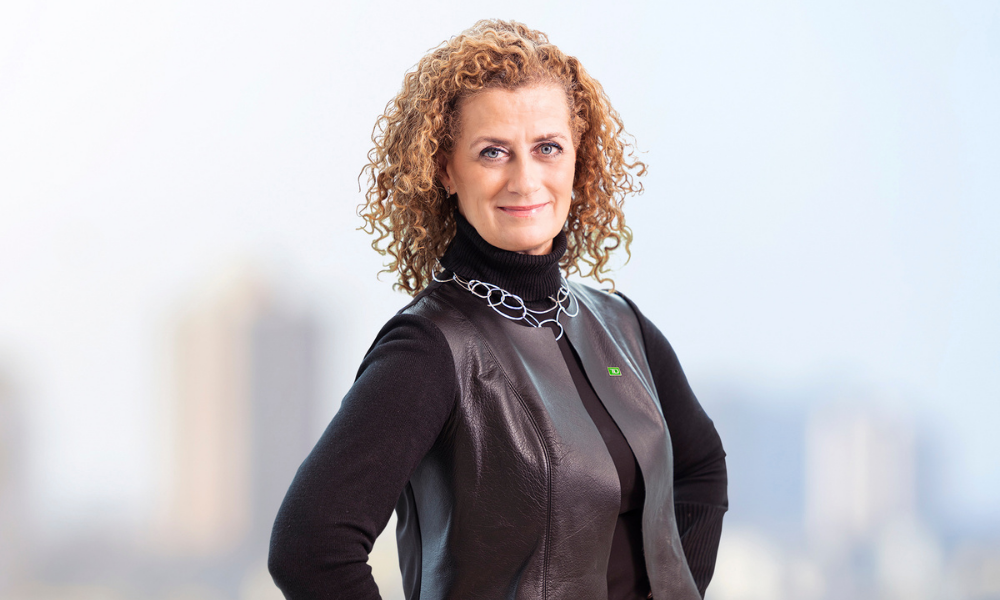Financial future will be put in jeopardy if they lack the confidence to ask for help, says TDAM VP

Advisors need to do more to help women boost their financial confidence because we’re at a pivotal moment, according to a TD Vice President.
With large amounts of wealth transitioning to women, it's vital they know how to develop financial plans tp ensure financial futures. Ingrid Macintosh, Vice President, Executive Sponsor of the TD Wealth for Women program at TD Asset Management, told Wealth Professional this transfer could peak between 2026 and 2030 but that women have declared, or exhibited, differences in their financial confidence.
“They’re graduating from universities and postdoctoral degrees at a much higher rate than men," she says. "They are closing the earnings gap, although we’re not all the way there. They’re now out-earning and out-living men, and nine out of 10 women will likely be the sole financial decision-maker in their family at some point in their lives. But, women are facing challenges in connecting with financial services.”
She said surveys show that 83% of men versus 75% of women say they have personal financial plans. 60% of women between ages 45 and 55 also don’t have a written financial plan.
“Given that women will be the financial decision-makers at some point in their lives, they need to get engaged in that,” she said. “Right now, they either feel they don’t know enough to invest or they’re kicking the can down the road because they don’t think they have the time to do it.”
While many young female parents will leave that job to partners, Macintosh said fewer women (43%) than men (64%) plan to invest in the stock market. Women are more likely to invest in guaranteed investment certificates (GIC)s or take a lower risk in their portfolios because they either don’t believe they know enough or don’t have enough confidence to do it.
“They’re doing really conservative investments,” said Macintosh. “They’re not taking enough risk by investing in the markets, so they’re not likely going to meet their financial goals.”
While women could ask their local bank branch for help or use do-it-yourself platforms, they’re not.
“Just getting women to get on that journey is critically important,” said Macintosh, nothing that 70% of women say they want to do more with their money, but they don’t feel connected to the financial services industry, where 85% of advisors are men.
Advisors can help to improve this situation.
She recommended they recognize their blind spots and talk to women partners in couples as much as men since 80% of women fire their husbands’ advisors when their husbands die. Advisors also need to ensure they drop the jargon and speak to women in terms that they understand, and also see that the women feel comfortable asking questions about what they don’t know.
Advisors should also recognize that women’s interest in finances may ebb and flow with different life stages, such as less during parenting or more when planning for retirement. They should also recognize that women can be more impacted by things like job losses in the service industry during the pandemic and ensure they’re connecting with their clients during critical life moments, such as widowhood or divorce, especially since 43% of marriages end in divorce.
“I think advisors need to understand the different elements that women put priority on,” said Macintosh. “They’re worried about holistic advice. They’re worried about their families. Professional women are worried about their teams, and they’re worried about their actual competence. 47% of women, versus 40% of men, are more likely to not feel confident in their financial situation, especially fi there is a critical illness or event. Those numbers aren’t hugely different, but there is a heightened level of insecurity, or lack of confidence, in women.”
Advisors should also ensure that women have financial plans, including tax efficiency and estate planning, and are referred to other professionals, such as lawyers to help with their wills.
TD has developed women’s resources on its website and provided its advisors with more training and data on both how they can recognize their unconscious biases, but also understand women’s situations to better support them, so they can also retain their clients.
“We want women to feel more comfortable talking about money,” said Macintosh, “because if they don’t feel comfortable engaging with the advisory industry and getting advice because we haven’t made it friendly or accessible to them, then they may be sitting in very conservative investments, like GICs, and thinking they’ve done the right thing, while inflation is outpacing anything they earn. That’s what’s going to hurt them in the long run and that’s what keeps me awake at night.
“I want women to talk about money like they would talk about sex or menopause with their friends, and I want them to ask their advisors for support. But, I also want advisors to go looking for them because they’re out there and they need their support.”


